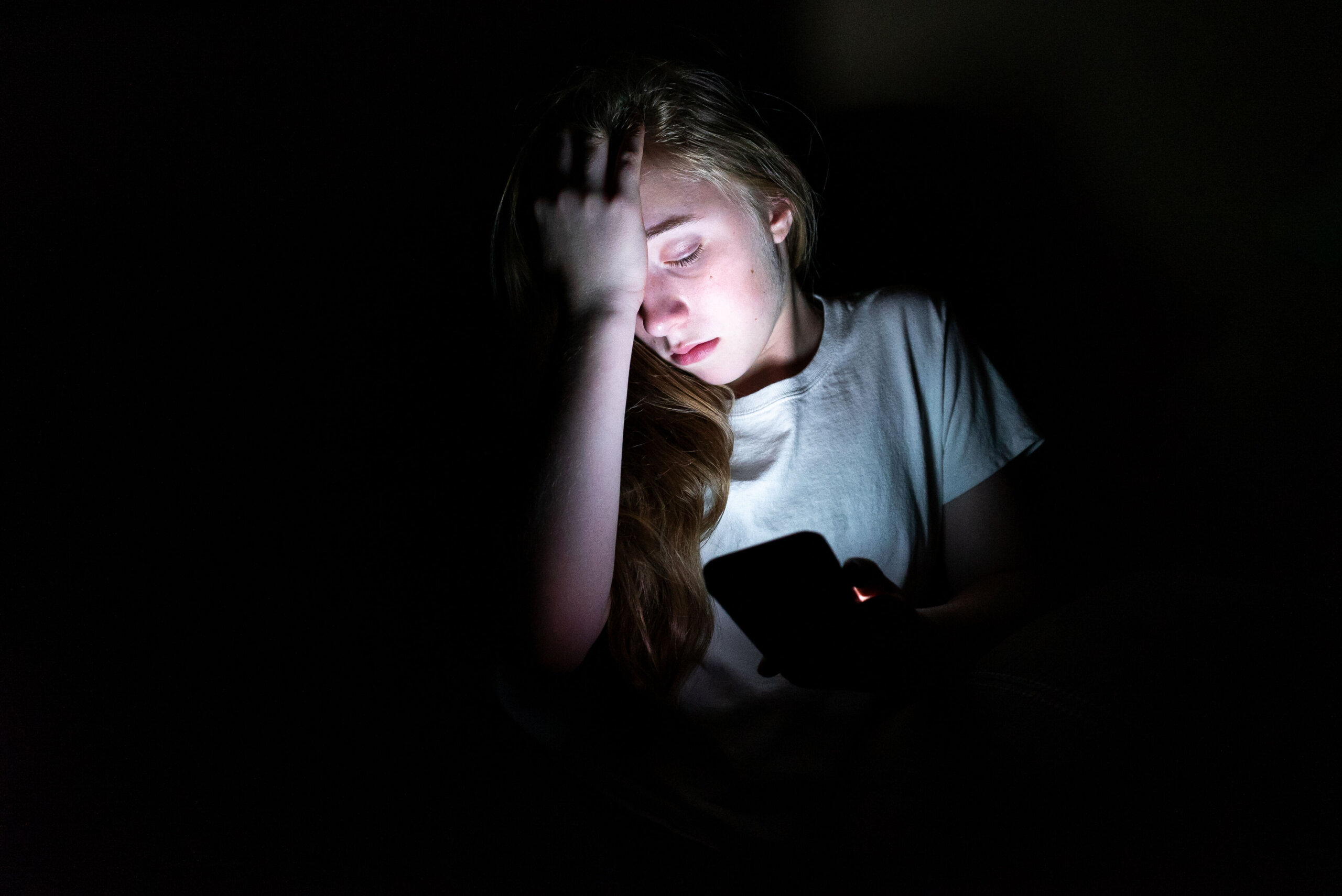‘A burgeoning epidemic’: Why some kids are forming extreme emotional relationships with AI – WTOP

Mike Murillo | mmurillo@wtop.com
September 10, 2025, 3:42 AM
As more kids turn to artificial intelligence to answer questions or help them understand their homework, some appear to be forming too close a relationship with services such as ChatGPT — and that is taking a toll on their mental health.
“AI psychosis,” while not an official clinical diagnosis, is a term clinicians are using to describe children who appear to be forming emotional bonds with AI, according to Dr. Ashley Maxie-Moreman, clinical psychologist at Children’s National Hospital in D.C.
Maxie-Moreman said symptoms can include delusions of grandeur, paranoia, fantastical relationships with AI, and even detachment from reality.
“Especially teens and young adults are engaging with generative AI for excessive periods of time, and forming these sort of fantastical relationships with AI,” she said.
In addition to forming close bonds with AI, those struggling with paranoia may see their condition worsen, with AI potentially affirming paranoid beliefs.
“I think that’s more on the extreme end,” Maxie-Moreman said.
More commonly, she said, young people are turning to generative AI for emotional support. They are sharing information about their emotional well-being, such as feeling depressed, anxious, socially isolated or having suicidal thoughts. The responses they receive from AI vary.
“And I think on the more concerning end, generative AI, at times, has either encouraged youth to move forward with plans or has not connected them to the appropriate resources or flagged any crisis support,” Maxie-Moreman said.
“It almost feels like this is a burgeoning epidemic,” she added. “Just in the past couple of weeks, I’ve observed cases of this.”
Maxie-Moreman said kids who are already struggling with anxiety, depression, social isolation or academic stress are most at risk of developing these bonds with AI. That’s why, she said, if you suspect your child is suffering from those conditions, you should seek help.
“I think it’s really, really important to get your child connected to appropriate mental health services,” she said.
With AI psychosis, parents need to be on the lookout for symptoms. One could be a lack of desire to go to school.
“They’re coming up with a lot of excuses, like, ‘I’m feeling sick,’ or ‘I feel nauseous,’ and maybe you’re finding that the child is endorsing a lot of physical symptoms that are sometimes unfounded in relation to attending school,” Maxie-Moreman said.
Another sign is a child who appears to be isolating themselves and losing interest in things they used to look forward to, such as playing sports or hanging out with friends.
“I don’t want to be alarmist, but I do think it’s important for parents to be looking out for these things and to just have direct conversations with their kiddos,” she said.
Talking to a child about mental health concerns can be tricky, especially if they are teens who, as Maxie-Moreman noted, can be irritable and a bit moody. But having a conversation with them is key.
“I think not skirting around the bush is probably the most helpful thing. And I think teens tend to get a little bit annoyed with indirectness anyhow, so being direct is probably the best approach,” she said.
To help prevent these issues, Maxie-Moreman suggested parents start doing emotional check-ins with their children from a young age.
“Just making it sort of a norm in your household to have conversations about how your child is doing emotionally, checking in with them on a regular basis, is important. So starting at a young age is what I would recommend on the preventative end,” she said.
She also encouraged parents to talk to their children about the limits of the technology they use, including generative AI.
“I think that’s probably one of the biggest interventions that will be most helpful,” she said.
Maxie-Moreman said tech companies must also be held accountable.
“Ultimately, we have to hold our tech companies accountable, and they need to be implementing better safeguards, as opposed to just worrying about the commercialization of their products,” she said.
Get breaking news and daily headlines delivered to your email inbox by signing up here.
© 2025 WTOP. All Rights Reserved. This website is not intended for users located within the European Economic Area.
Mike Murillo is a reporter and anchor at WTOP. Before joining WTOP in 2013, he worked in radio in Orlando, New York City and Philadelphia.
5425 Wisconsin Ave
Chevy Chase, MD 20815
hello@wtop.com
202.895.5000
Copyright © 2025 by WTOP. All rights reserved. This website is not intended for users located within the European Economic Area.